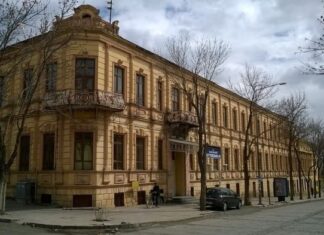Ancient vs Modern Greek
In the spring of 1902, Athens experienced political riots caused by a dispute over language. Greek scholars are very protective of their language and aim to restore ancient Greek as the main form of communication. At that time, modern Greek was not taught at the university, and whether it should be taught in public schools became a major political issue.
Supporters of teaching ancient Greek argue that the only way to restore the classic language is to teach it to children from the earliest school years. They believe that children should learn the pure, classical form, just as students in other countries study classical literature to preserve cultural heritage.
Opponents, however, warn that if children are taught only ancient Greek, they will not be able to read modern newspapers, magazines, or books. Modern Greek is a simplified and evolved form of the ancient language, similar to how modern Italian has developed from Latin. While people from different provinces can often understand each other when speaking, very few common citizens can read the pure classical language fluently Tour Guide Turkey.
Scholars and Political Debate
The debate over language is not only cultural but highly political. Many literary figures and politicians favor the modern Athenian dialect because it is more accessible to the public. One notable opponent of teaching ancient Greek even moved to England after being strongly criticized by university faculties and scholars, who accused him of acting against Greek culture and heritage.
The argument continues in cycles, sometimes calm and sometimes heated, and many books and essays have been published supporting both sides. The conflict demonstrates how deeply Greeks value their language as part of their national identity.
Queen Olga’s Initiative
During the war with Turkey, Queen Olga, a noblewoman and niece of the late Czar of Russia, became aware of a practical problem: soldiers could not read the Bible in classical Greek. Deeply concerned, she commissioned two leading theologians to translate the Gospels into modern Greek. The translations were printed quickly and distributed widely to soldiers.
Queen Olga personally funded the project, paying the translators generously and covering all costs from her private funds. By the end of the war, every soldier in the Greek army had received one of her modern Greek Bibles, allowing them to read and understand the sacred texts. Her actions demonstrated how language could bridge the gap between classical heritage and practical communication Politics in Greece.
The Larger Issue
This controversy over ancient versus modern Greek is more than a linguistic debate; it reflects tensions between tradition and modernity in Greece. While scholars fight to preserve their heritage, practical needs, such as education, literacy, and accessibility, push for the modern language. The issue remains a symbol of national identity, culture, and education in Greece.








